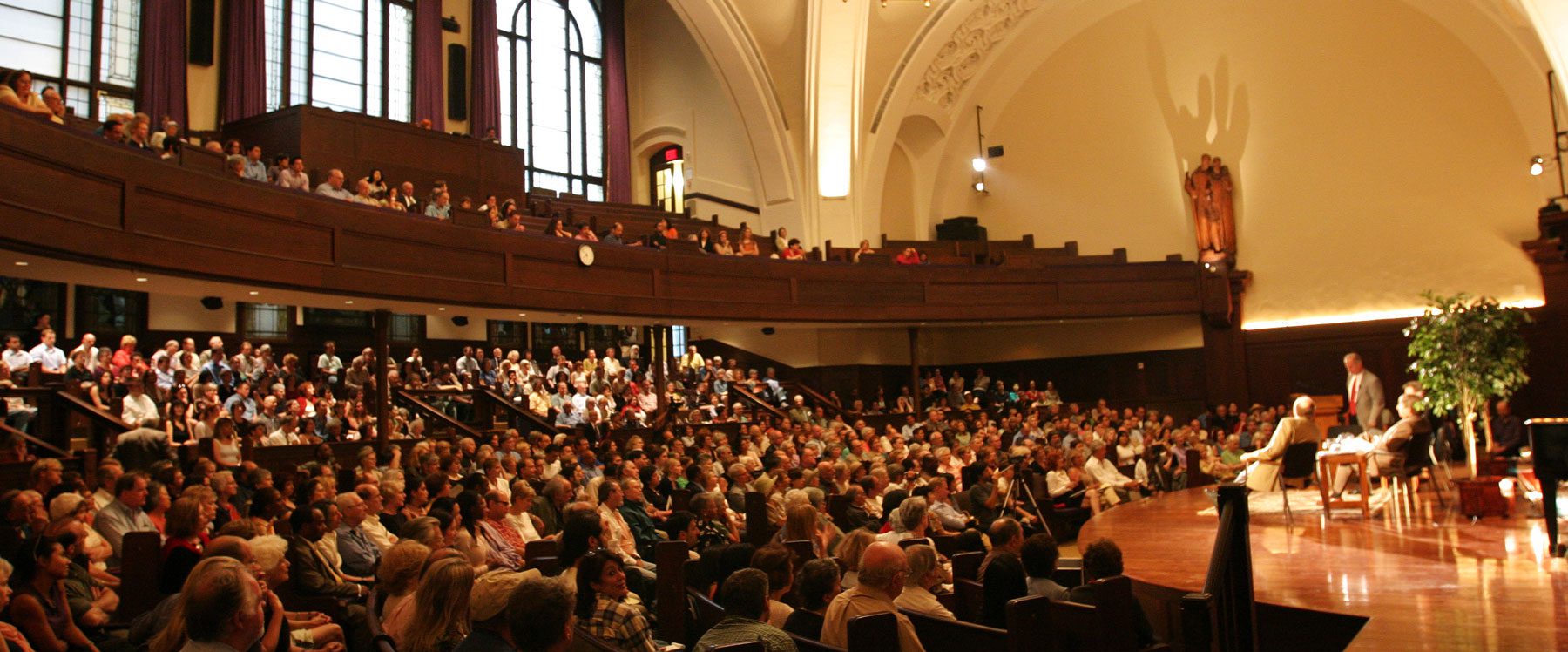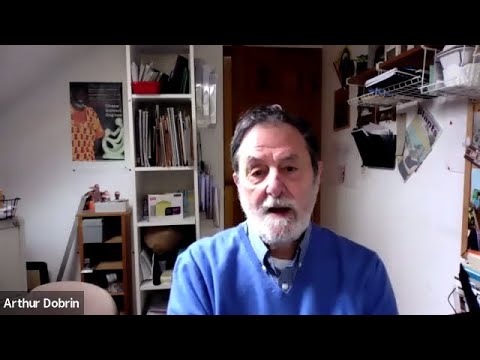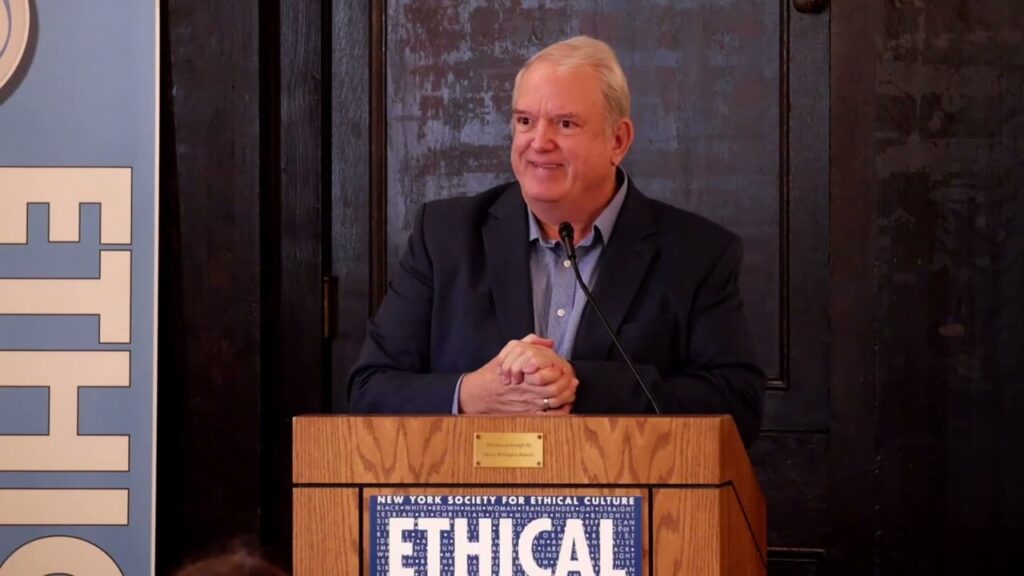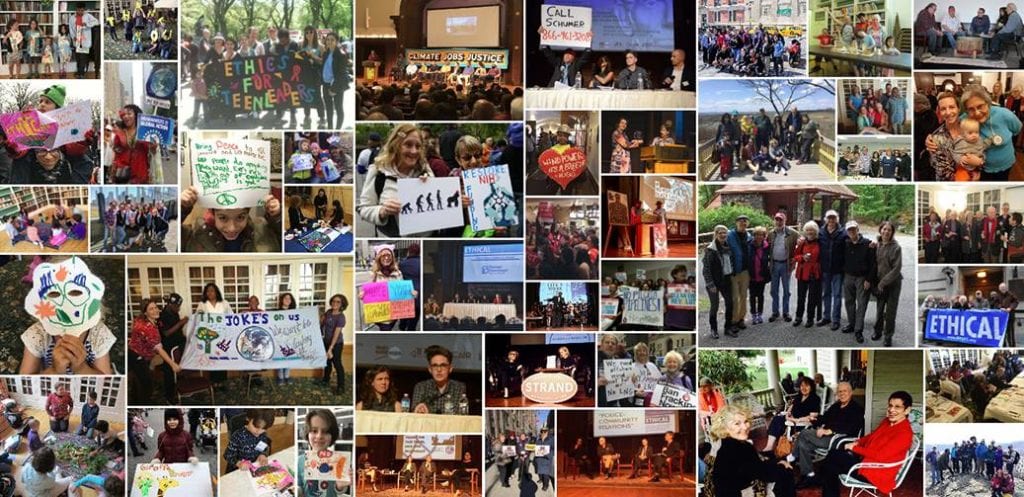
“Oh, freedom, freedom. Freedom come and it won’t be long.” Mr. Hollis Watkins, founder of the Mississippi Veterans of the Civil Rights Movement, taught participants at The Encampment Intergenerational Weekend this song. He also shared his activist history with us. Hollis (as he asked us to call him) was born in 1941 in Lincoln County, MS. He became a member and organizer of the Student Nonviolent Coordinating Committee (SNCC) in 1961 and a county organizer for “Freedom Summer” in 1964. Hollis also saw the inside of jail cells.
We learned from him and other social justice activists, as well as from the twenty 16- and 17-year olds from across the country, who were concluding three weeks of progressive leadership training at Tougaloo College in Jackson, MS. Encampment alumni and friends gathered from Friday to Sunday (7/17-19) to celebrate the third summer session since the Encampment was “resurrected” in 2009 at a reunion hosted by the New York Society for Ethical Culture. What a joy it was for me to participate!
The Encampment was founded in 1946 by Leader Algernon D. Black and Alice (“Nanny”) Pollitzer, a prominent civic leader, as an opportunity for “young adults of many religious, racial, social and national backgrounds” to learn “the principles and techniques of citizenship… through lived experience.” While Black was inspired by the Civilian Conservation Corps (CCC) and American Friends Service Committee (AFSC), he thought those programs lacked diversity and an emphasis on the meaning of democracy. He believed that young people could be a positive force in their communities if they developed critical thinking skills, youth activism, leadership qualities, and the courage to break free from stereotypes.
Eleanor Roosevelt, long-time chair of The Encampment board of sponsors, often hosted students for discussions, workshops and barbeques at her Hyde Park estate. When the program was attacked by McCarthyite forces in the early 1950s, she defended it vigorously. “The reason I think these Encampments are so important,” she wrote, “is that they are attended by citizens of different races and groups. They prepare people for thinking in terms of all people and not in terms of a selected few. Not only we in the U.S., but people all over the world, need young people trained to be good citizens with an ability to think with an open mind.”
How right she was! And what an ideal setting Tougaloo College was for this summer’s Encampment. It was founded in 1869, and a plaque designates it as a site on the Mississippi Freedom Trail. “The courage of Tougaloo College students, faculty and staff fueled the Jackson Civil Rights Movement,” it reads. “In demonstrations and sit-ins, they suffered insults, beatings and jailings. A private institution, Tugaloo was not governed by racist state policies but did risk the revocation of its charter as it became a safe haven for activists fighting for dignity, equality, and justice.”
Every adult was assigned a student buddy, and mine was Savannah Holloway, an African-American teen from San Francisco. She told me that she had “found her voice” and planned on using it when she returned home. On Sunday, she and all of her fellow “Encampers” shared with us the projects they planned to start; we adults offered them our support and resources. Networking is important in social justice work, and now we are all connected to one another, passing wisdom down to the next generation and learning from the young new ways to communicate.
For more information, and to make a donation, visit http://encampmentforcitizenship.org/.







